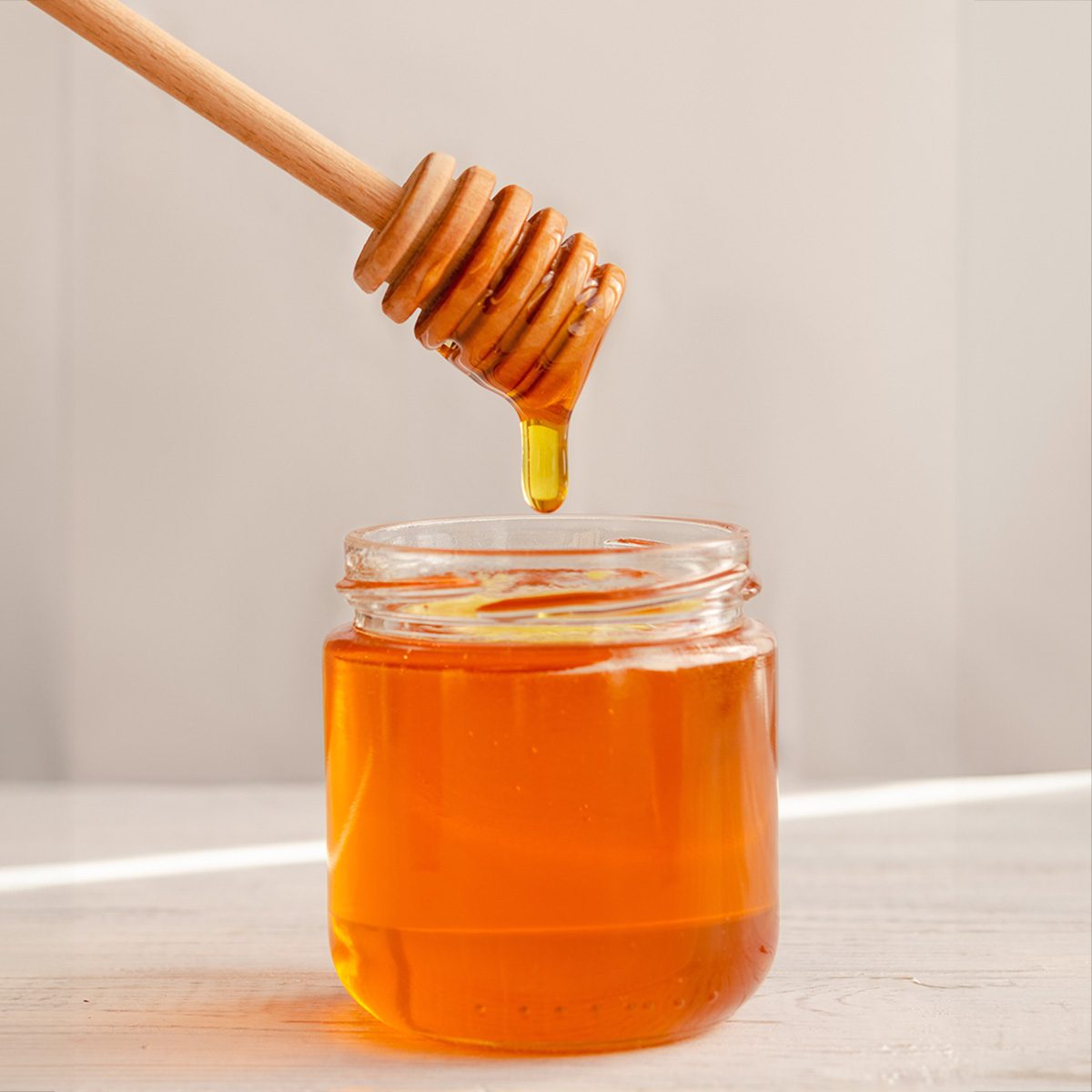We asked an expert to clear up the myths about metal spoons versus honey dippers.

This Is Why You Should Be Using a Wooden Spoon for Honey

Drizzling honey over warm biscuits or stirring it into tea is one of life’s simple pleasures. And while you may see it in pictures, not everyone has a honey dipper. After all, having very specific kitchen tools can be fun, but they can also clutter your kitchen drawers. Some people swear by wooden utensils for honey, though, because apparently metal spoons can affect the taste of honey. We asked Chelsea LeBlanc, RDN and spokesperson for the National Honey Board, to set the record straight.
Why You Should Use Wood with Honey
Wooden utensils are a favorite among honey lovers for more than their rustic aesthetic. “Wood is a neutral material that doesn’t react with honey’s natural acids, helping to preserve the honey’s flavor and quality,” says Chelsea. Because it’s nonreactive, wood won’t alter the taste or compromise the integrity of your honey even if it sits on the spoon for a little while.
Do metal spoons kill honey enzymes?
If you’ve heard that metal spoons destroy honey’s beneficial enzymes, you’re not alone—but this is actually a myth. “The enzymes in honey are not instantly destroyed by brief contact with metal,” Chelsea explains. The real issue arises if honey is left in prolonged contact with certain reactive metals, like copper or iron (a honey storage no-no). In those cases, the acids in honey can cause the metal to corrode, potentially affecting the honey’s taste and quality.
Is it OK to use metal with honey?
The good news is that it’s perfectly fine to use a metal spoon with honey, especially if you’re just scooping and serving. “Brief contact or stainless steel utensils typically isn’t an issue,” says Chelsea. Just avoid storing honey in metal containers or leaving metal utensils sitting in honey for extended periods to prevent any unwanted reactions.
What’s the difference between using a honey stirrer versus a spoon?
If you’ve ever wondered why a honey dipper exists, it’s because it’s specifically designed for honey. “The grooves help collect honey and allow for slow, controlled drizzling, helping to minimize drips and mess,” Chelsea says. By contrast, spoons tend to drip more and make it harder to control the flow of honey, which can lead to sticky fingers and countertops.




















